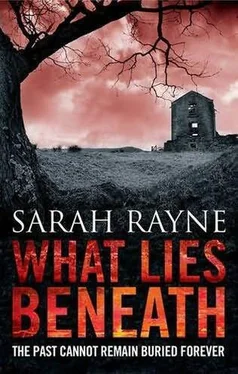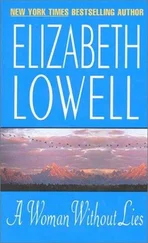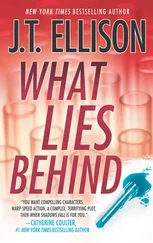She would have to hide from him as she had done before. Where? She looked frantically about her. The chimney breast was still there, a tangle of police tape across it, but little different from how it had been all those years ago. The hearth was a gaping hole, full of broken bricks and mud, and Ella darted across to it. A breath of sour dank air met her, but the chimney shaft looked more or less intact. She hesitated; then, as the footsteps came across the cracked terrace she stepped inside the chimney shaft, trying not to breathe in the black bitter-smelling darkness. She stood absolutely still, listening for his footsteps, just as she had listened for them in this very house more than fifty years ago, together with Veronica and Clem.
Whoever he was, that man, this time she would kill him properly.
Jamie Cadence’s Journal
The strange thing about Crispian’s death in France was that I hadn’t expected him to be killed. I thought he would come home, adorned with any number of medals for bravery, and that he would still stand between me and Cadences.
But he didn’t. He died in the Somme, along with Gil Martlet. A few years earlier that would have solved the entire thing and Cadences would have passed to me. But now there was another obstacle in the way. Saul.
No one actually came out and said it, but it was clear to anyone who could count that Saul was conceived shortly before we all left England, at the time when Julius had entered the final stages of his loathsome disease.
‘Saul’s free of it, though,’ said Crispian to me once, on a brief leave from France in 1915. ‘Dr Martlet is definite about it.’
Dr Martlet would have sworn away his immortal soul and told every lie known to man if it would inveigle him a little more into Serena Cadence’s good graces. I’ll acquit those two of ever embarking on anything physical. Serena was the original ice maiden, and Gillespie Martlet was one of those bloodless, sexless men. It was one of nature’s quirks that he had fathered a son like Gil. But Martlet’s one aim in life was to surround Serena with whatever fictions and fantasies made her feel safe and pampered, so for the first few years of Saul’s life the fiction was maintained that he had escaped the taint that had killed his father.
He had not escaped it at all. I knew it, and everyone in Cadence Manor must have known it. By the time he was two his face showed definite signs of lesions – scar tissue radiating around the mouth – and his nose was developing into what I later learned was called saddle-nose. It’s as if the bone and gristle have collapsed and apparently it’s a classic symptom of congenital syphilis. I don’t remember if there was ever any formal arrangement or agreement that I should take over Saul’s care, but somehow, with Crispian in France and Serena becoming more of a recluse every month – and Colm already a recluse anyway – it’s what happened.
I never had the stomach to kill Saul, though. I’d like that understood. I’d like whoever reads this to know it’s the absolute truth. I’m a dying man, for God’s sake (twenty-four hours left), and I’m hardly likely to lie in these pages while death’s gibbering at me from the shadows. In any case, killing Saul would have been too risky. There were too many people around, constantly watching him: Mrs Flagg, the sour old witch Crossley, who looked after Serena, and the two maids. They all flapped around him constantly. I always thought they were trying, consciously or unconsciously, to make up for Serena’s indifference, because it was clear to me that Serena could hardly bear the sight of Saul. So I didn’t dare attempt anything. Also, if Crispian came back from the war I would still have to kill him, and the death of the two brothers, no matter how carefully I staged it, would raise everyone’s suspicions.
But once Crispian was out of the way for good I took over Saul’s upbringing completely. I was subtle about it. I recall I even demurred at one point, suggesting there were people better qualified to undertake the task. But to have control of him was what I intended all along. History’s chock-full of wicked uncles and rascally cousins and illegitimate heirs (ha!) scheming to get their hands on the riches of their wards. I promise you, Richard III had nothing on me, and if I could have walled up that child without fear of discovery, I would have done it.
But there are more ways of getting control of a fortune than by committing murder.
By the time Saul was four, with the dogs of war still ravaging Europe, Martlet and Serena finally admitted that Saul had inherited the disease my mother had brought into the family. They all agreed it was so tragic. (Tragic was a word used a good deal about my family.) But in Saul’s case the illness need not necessarily be fatal, they said firmly. There were things that could be tried. Medicine had made great strides since the war. War was a forcing house for all kinds of discoveries. There was a very good chance that Saul Cadence could beat the disease.
I listened to all this solemn discussion, and thought: he won’t beat it if I can help it! I was in touching distance of the Cadence empire by that time. Everything was being held in trust for Saul’s twenty-first birthday and I was one of the trustees, along with Colm, who was less than useless, Serena, who hardly ever left the manor, and a couple of doddering old men in London. I could manipulate the whole lot of them easily. Meetings were held at Cadence Manor three or four times a year, but they were a travesty. Colm said very little, Serena was usually too unwell to attend (or said she was), and the two London fossils deferred to me over everything. I used to prepare my proposals in advance and pass neatly written sheets round the table. They were so relieved to have the work done for them, they agreed to anything I put forward.
The concern they all had, of course, was whether the legacy that had sent Julius mad would send Saul mad, too. Mad people certainly could not be allowed to inherit huge banking concerns and estates. And if Saul really did end in being pronounced insane, who was the next in line to inherit? Colm was the nearest, but he could be discounted. He did not want it and he was not capable of dealing with it. So who, but Colm’s son, quiet reliable Jamie?
Having read this far, my unknown reader, can you doubt that I manipulated the treatments Saul was given? By that time there were antisyphilitic drugs, in particular one called Neosalvarsan. Small, bullet-shaped tablets. So easy for Saul to swallow. So easy for his unscrupulous guardian to substitute with harmless pills of bismuth or soda, flushing the real pills down the lavatory. I looked solemn and sad when old Dr Martlet or his colleagues shook their heads over the progress of the disease in Saul, and told one another that after all there was no clear cure, that Neosalvarsan was not the cup of life or the elixir of health that had been promised.
They would keep trying, though, and in the meantime the best thing for Saul was to live quietly in the country, tutored and taught in his own home, all under the care of his widely read and selfless cousin Jamie. They would hope, they said, that the seeds of madness did not bear fruit.
I nodded in agreement, and scribbled my understanding and acceptance.
I had no intention of trying to cure Saul. I meant to foster the seeds of his madness to bear an entire orchard of fruit.
As for my own madness…
Any thoughts I might have had of the darkness vanishing after Edirne were soon dispelled. Shortly after we arrived back in England, the familiar pattern reinstated itself. There would be weeks – often even months – when I would dare to hope it had retreated for good, and then would come the familiar wrenching pain in my mind, and the sensation of invisible ogre-hands twisting my whole being into a totally different shape.
Читать дальше












